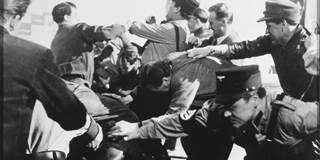The Great Crack-Up, Then and Now
The Great War laid waste to the economic and political foundations of Europe, but did not establish a new international order, thus setting the stage for the disasters of the 1930s and 1940s. As the world approaches another period of vast economic and political change, the lessons of the interwar interregnum are more relevant than ever.

NEW YORK – Many now fear that we are witnessing the disintegration of the liberal international order, which has for decades ensured peace and prosperity in the West and many other parts of the world. That order was established after World War II, but it is worth remembering that its origins lie in the period following World War I.